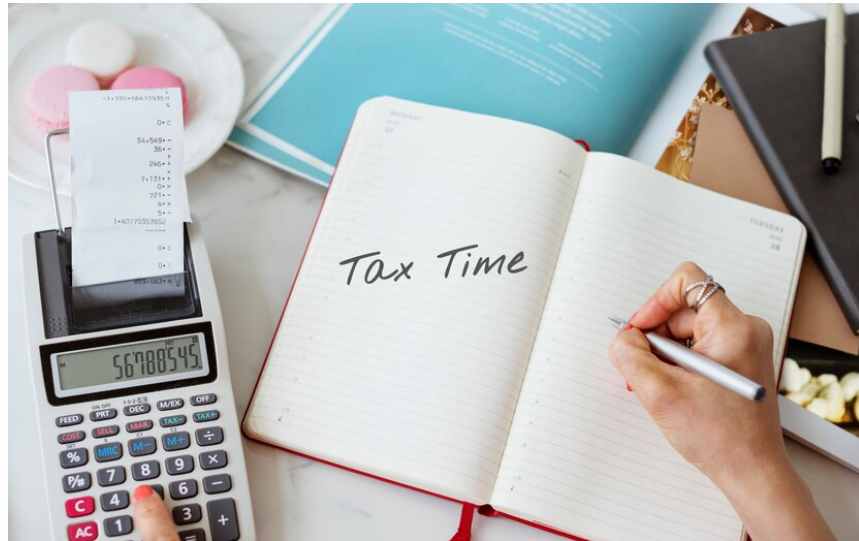
Trade Mark Registration in India:
In today’s competitive business landscape, protecting your brand identity is crucial. A trademark serves as a unique identifier of goods or services, distinguishing one business from another. In India, trademark registration is governed by the Trade Marks Act, 1999, and is administered by the Controller General of Patents, Designs, and Trade Marks under the Ministry of Commerce and Industry. This blog provides a step-by-step guide on trademark registration in India, its benefits, and other essential aspects.
What is a Trade Mark?
A trademark is a visual symbol in the form of a word, name, logo, slogan, shape, or sound that represents a brand. It provides legal protection and helps build brand recognition. Some well-known trademarks include the Nike "swoosh," Apple’s half-bitten apple logo, and McDonald’s golden arches.
Benefits of Trademark Registration
Exclusive Rights: The owner gets exclusive rights to use the registered trademark for specific goods or services.
Legal Protection: A registered trademark provides legal protection against infringement.
Brand Recognition: It helps build a unique brand identity and customer trust.
Asset Creation: A trademark is an intellectual property that can be sold, franchised, or licensed.
Global Recognition: A registered trademark can be used as a basis for international trademark registration.
Prevents Unauthorized Use: Competitors cannot use similar marks that might confuse consumers.
Who Can Apply for a Trade Mark?
Individuals: Any person intending to use a trademark for business purposes.
Companies: Private limited, public limited, and LLPs can apply for a trademark.
Proprietors & Partnership Firms: Businesses operating under sole proprietorship or partnership structures.
Foreign Entities: Foreign companies looking to do business in India can apply for trademark registration.
Types of Trade Marks
Word Mark: A name or word that represents a brand (e.g., Google, TATA).
Logo Mark: A distinctive design or symbol (e.g., Starbucks logo).
Tagline/Slogan: A phrase representing the brand (e.g., "Just Do It" by Nike).
Sound Mark: A unique sound associated with a brand (e.g., Nokia tune).
Shape Mark: The unique shape of a product or packaging (e.g., Coca-Cola bottle design).
Color Mark: A specific color associated with a brand (e.g., Tiffany Blue).
Steps to Register a Trade Mark in India
Step 1: Conduct a Trademark Search
Before filing an application, conduct a trademark search on the official website of the Indian Trademark Registry (www.ipindia.nic.in) to ensure that the desired trademark is unique and not already registered.
Step 2: Determine the Class of Goods/Services
Trademarks are categorized into 45 classes under the Nice Classification system. Classes 1-34 cover goods, while classes 35-45 cover services. Selecting the appropriate class is crucial for a successful application.
Step 3: File the Trademark Application
You can file the application either online through the IP India website or offline by submitting Form TM-A to the appropriate trademark office. The application must include:
Trademark details (word, logo, sound, etc.)
Applicant’s name and address
Description of goods/services
Power of Attorney (if filed through an agent)
Fee payment (INR 4,500 for individuals/startups; INR 9,000 for companies)
Step 4: Examination by the Trademark Office
Once filed, the Registrar examines the application for any discrepancies, conflicts, or legal objections. This process may take 8-12 months.
Step 5: Publication in the Trademark Journal
If there are no objections, the trademark is published in the Trademark Journal for public scrutiny. If no opposition is filed within 4 months, the application proceeds to the next stage.
Step 6: Opposition Proceedings (If Any)
Any third party can oppose the registration within 4 months of publication. If opposed, a legal hearing is conducted to decide the fate of the trademark.
Step 7: Trademark Registration & Certificate Issuance
If there is no opposition or the applicant wins the opposition proceedings, the trademark is registered, and a certificate is issued. The trademark is valid for 10 years and can be renewed indefinitely.
Documents Required for Trademark Registration
- PAN Card and Aadhaar Card of the applicant
- Business registration proof (for companies/firms)
- Trademark logo (if applicable)
- Power of Attorney (if filed by an agent)
- MSME or Startup India certificate (for fee reduction eligibility)
Trademark Infringement & Legal Remedies
Trademark infringement occurs when an unauthorized party uses a mark identical or similar to a registered trademark, leading to confusion among consumers. Legal remedies include:
Cease and Desist Notice: A legal notice sent to the infringer demanding them to stop using the mark.
Civil Lawsuit: The trademark owner can file a suit for damages, injunctions, and seizure of counterfeit goods.
Criminal Action: In severe cases, the infringer can face criminal penalties under the Trade Marks Act, 1999.
International Trademark Registration
For businesses looking to expand globally, trademarks can be registered internationally through the Madrid Protocol. This allows Indian businesses to apply for trademark protection in multiple countries with a single application.
Trademark Renewal
A registered trademark is valid for 10 years and can be renewed indefinitely every 10 years by filing Form TM-R and paying the renewal fee.
Frequently Asked Questions (FAQs)
1. How long does it take to register a trademark in India?
It typically takes 12-18 months for a trademark to be registered, provided there are no objections or oppositions.
2. Can I use TM before my trademark is registered?
Yes, you can use the TM symbol while the application is pending. Once registered, you can use the ® (Registered) symbol.
3. What happens if my trademark application is rejected?
You can respond to objections, file an appeal, or modify the trademark and reapply.
4. Can a foreign company register a trademark in India?
Yes, foreign entities can apply for trademark registration in India.
5. What is the validity of a registered trademark?
A registered trademark is valid for 10 years and can be renewed indefinitely.
By securing a trademark, businesses safeguard their brand reputation and prevent unauthorized use. If you need assistance with trademark registration, consulting a legal expert is always recommended.

Author : Uttam Bisht
01 March, 2025 | 11:23 PM
Mr. Uttam Bisht is a partner with the Delhi Branch of the firm. He has more than 8 years of experience and specializes in Statutory Audit. Expertise in Tax audit of various enterprises. Extpertise internal audit of Private enterprises. Audit planning through business understanding, preliminary analytical procedures, determining materiality levels, and preparation of audit program and pre-audit checklist . He is well conversant with the auditing standards issued by ICAI. .
Tags
Recent Blogs

06 February, 2026 | 07:28 AM
Decoding Union Budget 2026

13 May, 2025 | 07:42 AM
Top 5 Tips for Filing ITR 4 Easily

08 May, 2025 | 01:09 AM
Simple Guide to Filing ITR1 Sahaj

30 April, 2025 | 05:51 AM
Mortgage Rates Today

26 April, 2025 | 10:23 PM
How Bank's are scamming you - Fixed vs Reducing Rate

02 March, 2025 | 05:32 AM
15 Benefits of ITR Filing
Popular Blogs

14 February, 2024 | 11:43 PM
Top 15 ITR Filing Documents

21 March, 2024 | 12:29 AM
The Road to Financial Freedom: Leveraging Tax Services for Long-Term Success

27 February, 2024 | 11:20 PM
Why Filing ITR with No Income is Smart

14 February, 2024 | 11:39 PM
21 Ways to Save Tax From Salary

10 October, 2024 | 10:15 PM
Exploring the 15 Financial Websites You Should Bookmark Right Now

14 February, 2024 | 11:35 PM
